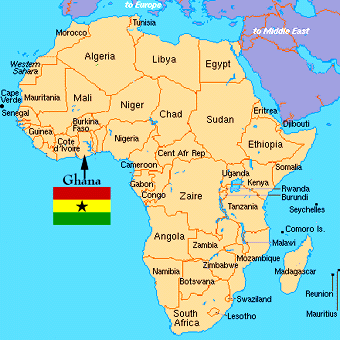
I returned home two days ago after spending a week with publishers in the city of Accra, Ghana representing Media Associates International (www.littworld.org). The Ghana Publisher’s Forum included about thirty people from both Christian and general trade publishers, gathering for sixteen topical sessions over four days on subjects as wide ranging as Developing a Strong Publishing Program to Human Resource Management.
Last fall, I had the privilege of meeting 200 publishing people from 50 countries at the LittWorld 2012 conference in Kenya, organized by MAI.
This month, Ramon Rocha and I presented material separately and together. He is the director of MAI’s training programs. As former CEO of OMF Literature in Manila, Philippines, Ramon led them from 1997-2008 to become that nation’s largest Christian publishing house. He was the founding chair of MAI-Asia, offering training and consultation to publishing leaders and authors in 11 countries, including China, Burma, Thailand, Vietnam, Cambodia, Indonesia and others. He authored The Christian Publisher: Strong in the Storm in the Expand Your LittWorld series (MAI).
The Ghana organizer of last week’s event, Lawrence Darmani is both a publisher and author of many books, including Grief Child, which received the important Commonwealth Writer’s Prize as the best first book from Africa in 1992. For a long time, that title was required reading in Ghana public schools.
The most interesting aspect of publishing in developing countries is that the authors and publishers of books are not separate and distinct groups or process. Most publishers actually have many of their authors working for them. As in Lawrence’s case, he continues to write books as well as manage the publishing company he owns.
Copyright piracy is a problem in many countries. In one session last week, a publisher mentioned that one customer purchased copies of a book from them, then scanned and printed their own edition so they could make more money. There was some legal recourse for the original publisher, but it was a very difficult process. (I used the word “Yikes” in response to hearing this and had to explain to the attendees what that meant!)
Every country around the world is unique when it comes to selling books. For instance, in Ghana, the largest customers for most publishers are the public schools. Online and digital sales are in their infancy, with a test program underway called World Reader, funded by private donations and the United Nations, supplying under-privileged schools with pre-loaded Kindles for the student’s use. Each unit has 100 titles loaded on it, with 20% being Western classics and 80% of the content coming from African writers.
Ghana is an educated and majority Christian country. Gaining their independence in 1957 from England, they are different from many of their neighboring countries in Africa in that they are a stable democracy. However, pray for them this week, because on Thursday, August 29, the Supreme Court of Ghana is expected to rule on an issue that could overturn their 2012 Presidential election. (Think 2000 in the U.S.) Peaceful transfer of power is a cornerstone of any democracy and Ghanaians are praying that the population will accept the high court’s ruling without incident. Both candidates are pleading with the population for calm and stating that they will accept the court ruling regardless.
People care about books and reading all around the world. Authors in Ghana have similar concerns to those in Greensboro. If you think about it today, pray for Christian writers around the world as they write to disciple Christ-followers and be voices of God’s grace to unbelievers.


